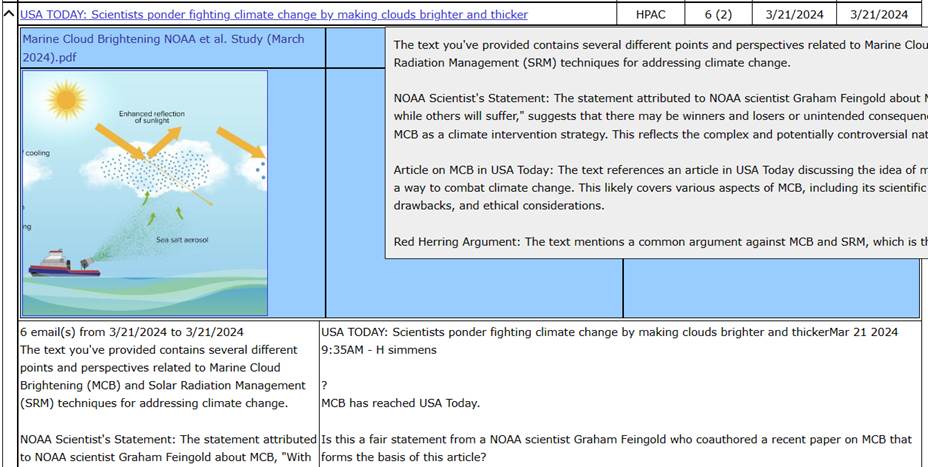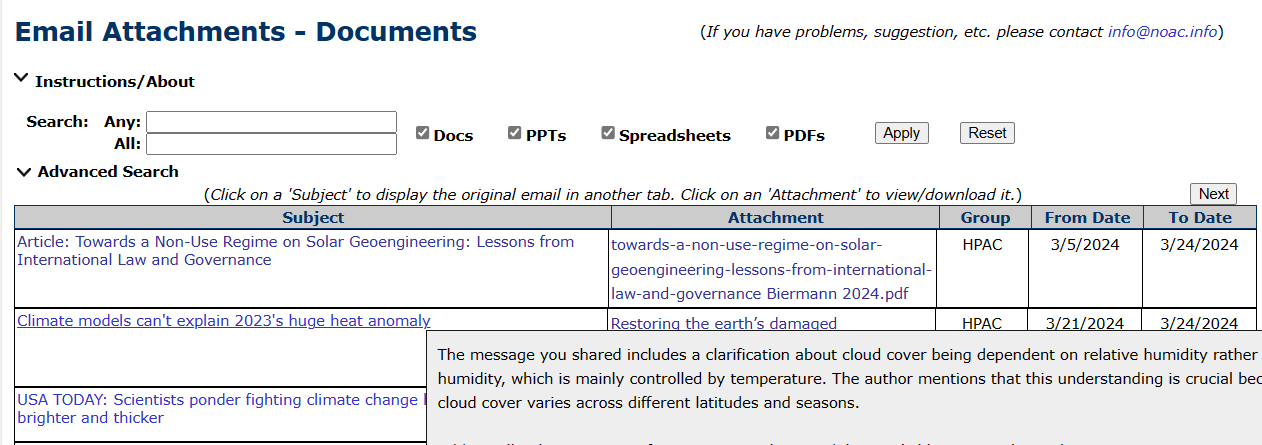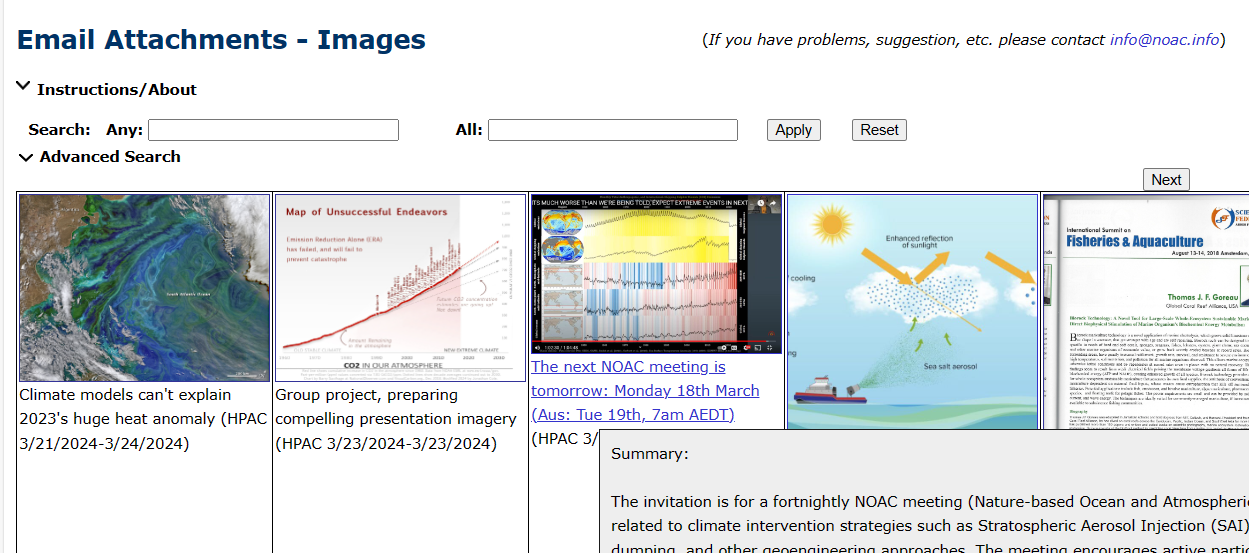|
|
Instructions/About |
Emails from four Google Groups (carbondioxideremoval,healthy-planet-action-coalition, and noac-meetings, and planetary-restoration) are summarized by ChatGPT
and attachments are made available for downloading and/or viewing. The earliest emails are from January 2022, but not all emails since then are included.

-
Emails are added daily about 5:00 AM Eastern time.
-
Emails with the same subject are grouped to together for Chat GPT to summarize
-
Emails with less than 500 characters are not summarized by Chat GPT
-
Chat GPT has a limit of about 30,000 characters, so emails with more than around 25,000 characters will divided into two more "summaries".
-
Click on a "Subject" to see the original emails with the subject (shown in date order)
-
"Hover" over a "Subject" to display the first 1,000 characters of the Chat GPT summary
-
Click the "Down Arrow" to display the entire Chat GPT summary. If the "Show Email" checkbox is checked both the Chat GPT summary and the original email will be displayed.
If the "Show Attachments" checkbox is checked links to the attached documents and "thumbnails" of attached images will be also be displayed.
(Note that separate menu options are provided to list links to the attached documents and to view the attached images.)
-
Please email info@noac.onfo if you have any suggestions on improving this site.


|
|
|